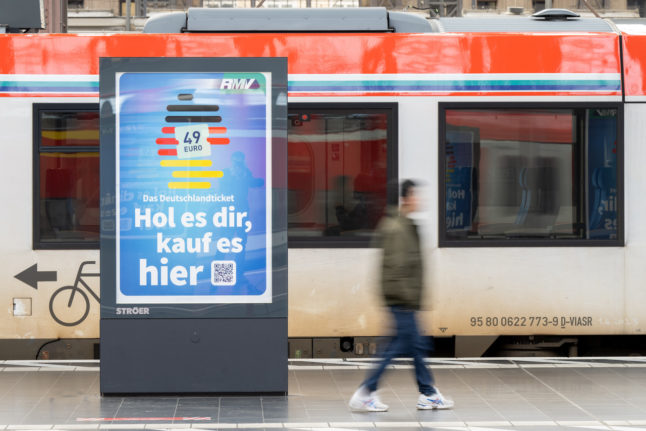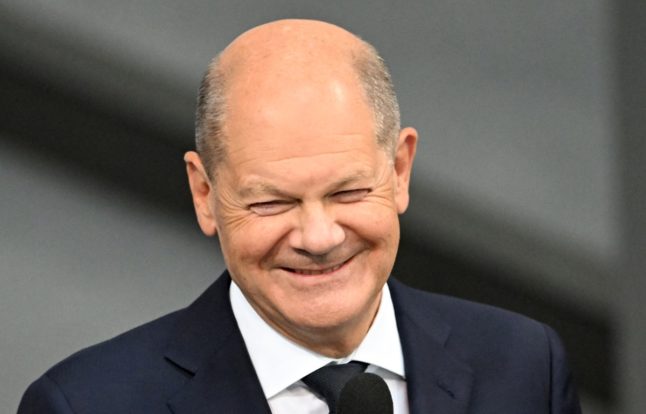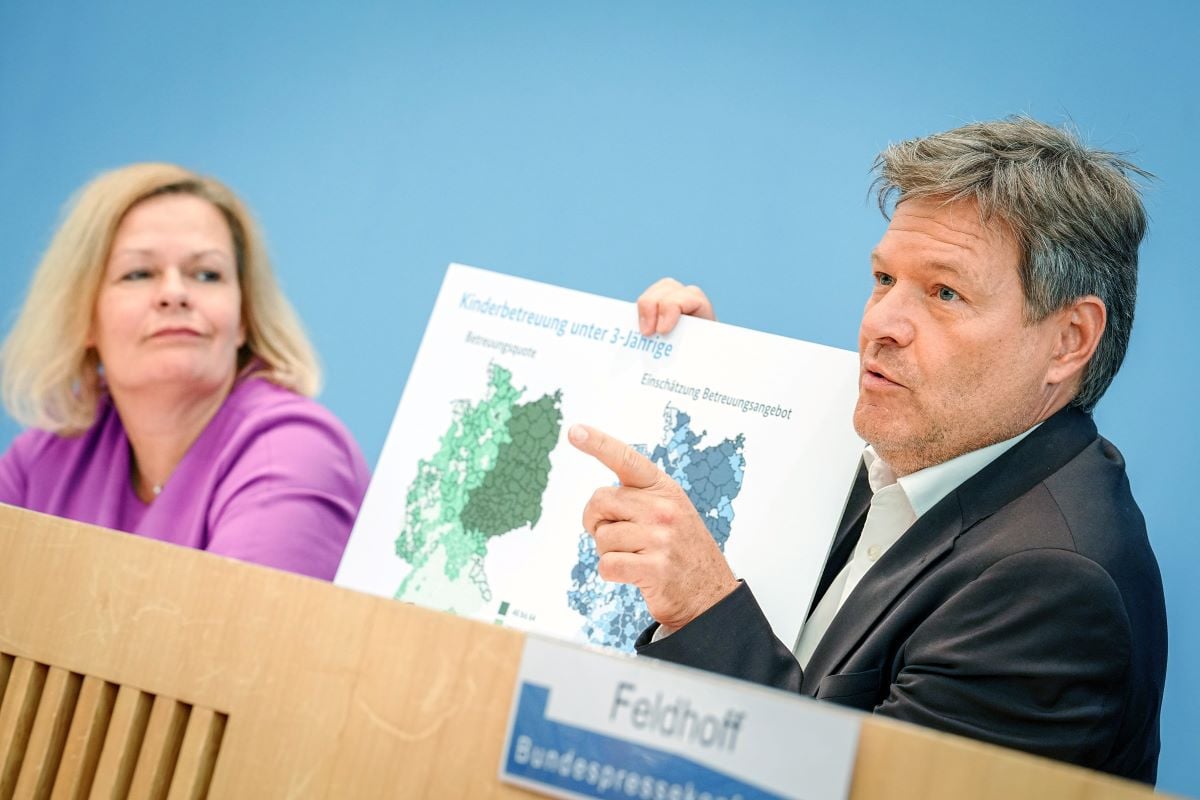Finance Minister casts doubt over future of €49 Deutschlandticket
Finance Minister Christian Lindner has expressed doubts about the future of the €49 Deutschlandticket, suggesting that modernising Germany’s railways would require greater levels of investment – something that could in turn mean raising ticket prices.
Originally launched in 2023, the €49 travel ticket allows unlimited travel nationwide for a month with certain long-distance services excepted from the offer.
Doubts have been cast about the future of the ticket before, with some towns including Stendal in the eastern German state of Saxony-Anhalt axing the discounted travel ticket and opting out of the scheme.
Lindner told Welt am Sonntag that modernising German railways will cost tens of billions of euros, and that in the near future a proper debate about the price of the Deutschlandticket will be needed.
“At some point, politicians will have to decide whether we want to invest more in the railways or whether the price should remain at €49,” Linder said.
READ ALSO: Will Germany’s €49 ticket be continued?
Three die in crash on country road in Saxony-Anhalt
Three people have died in a horror crash in the early hours of Monday in Saxony-Anhalt.
A car left the Landstraße 204 road at a bend around 2.15 am, plunging into a ditch and down a slope,
The 58-year-old driver lost control of her SUV in the rain.
Three people died and two are seriously injured. According to police, the passengers were young people and all come from the local region (Burgendlandkreis).
The road is closed following the accident.
Arrest after acid attack in Bochum leaves five injured
Police have launched an investigation after a man poured an acidic liquid on guests at a cafe in Bochum, North Rhine-Westphalia.
Five people were injured – one of them seriously – in the incident that took place in the outdoor seating area of the cafe in the “Bermudadreieck” district on Sunday at around 3.30 pm.
According to police, the customers were drinking coffee and eating food “in a relaxed atmosphere” when the attack occurred.
The man poured the acidic liquid over a male guest sitting at a table, according to police, and he was seriously injured. A woman sitting at the same table and a waitress were also injured.
The two other people injured as a result of the attack were other customers. All were taken to hospital by ambulance.
The suspected perpetrator was arrested nearby shortly after the attack.
It was initially unclear which liquid was involved, but it is being investigated with the help of a special unit at Dortmund fire and rescue.
Authorities are questioning the suspect.
German police register 830,000 border checks since start of Euro 2024
German police have reportedly carried out 830,000 border checks since the start of Euro 2024.
This is according to figures announced by national police chief Dieter Romann. A total of 603 people have been arrested during the border stops so far, with 85 people detained on suspicion of serious crimes such as terrorism and extremism.
86 people were turned back at the border for hooliganism-related offences.
Euro 2024 began on June 14th and will last until July 14th. The bolstered border checks will remain in place until July 19th.
READ ALSO:
- Germany prevents hundreds of illegal border entries before Euro 2024
- Can Germany’s hosting of Euro 2024 be judged a success so far?
England avoid shock at Euro 2024 as Spain ease into quarter-finals
England escaped an embarrassing exit from Euro 2024 on Sunday as they came from behind to beat Slovakia in extra time and reach the quarter-finals, while Spain defeated surprise packages Georgia 4-1 to set up a mouthwatering quarter-final showdown with hosts Germany.
A Jude Bellingham overhead kick deep in injury time and a Harry Kane strike early in extra time allowed England to beat Slovakia 2-1 in their last-16 tie in Gelsenkirchen.

The win set up a quarter-final meeting with Switzerland on Saturday in Düsseldorf.
Spain will now go to Stuttgart for a clash with the host nation Germany on Friday.
The last-16 action continues on Monday as Kylian Mbappe and France take on Belgium in Duesseldorf at 6pm before Portugal meet Slovenia in Frankfurt at 9pm.




 Please whitelist us to continue reading.
Please whitelist us to continue reading.
Member comments